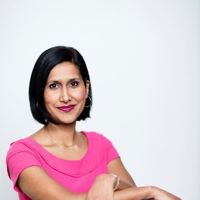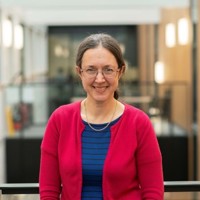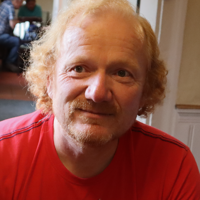This event is free of charge, but registration is required. This event will be broadcast live on LinkedIn, and your unique login details will be emailed to you after registering your place.
If you have any questions, please contact Beth Hagen, Events Coordinator, Royal Academy of Engineering at [email protected].
In March 2023, semiconductors were listed as the one of ’five technologies that are most critical to the UK’ in the government's UK Science and Technology (S&T) Framework.
Following our discussion of quantum technologies, the second instalment of this mini series, chaired by Academy CEO Dr Hayaatun Sillem CBE, will hear about the latest challenges, and opportunities, from engineers at the forefront of semiconductor research and industry. There will be opportunity for the audience to submit questions to the panel during the event.
Joining this conversation will be Professor Rachel Oliver FREng, University of Cambridge and Chair in Emerging Technologies, and Professor John Goodacre, Department of Computer Science, University of Manchester.
Critical Conversations series
Bringing together the thoughts of leading experts from across the Academy’s networks, our critical conversations explore issues of relevance to global professional engineering community and wider society. Fellows, awardees, and engineering partners gather to tackle topical issues of relevance to the global professional engineering community and wider society.
This special five part series of Critical Conversations will each explore a critical technology, highlighted in the government's UK Science and Technology (S&T) Framework as quantum technologies, semiconductors, engineering biology, artificial intelligence, and telecommunications.
Catch up on all previous Critical Conversations here.
Recording notice
Please note this event will be recorded and published on the Royal Academy of Engineering website.
Accessibility
It is very important to the Royal Academy of Engineering that our events are accessible to all. If you have any accessibility requirements, please contact the Events team at your earliest convenience so that necessary arrangements can be made. Contact details: [email protected].
Diversity monitoring form
The Academy is committed to building an inclusive economy that works for everyone. To help us achieve this, we would like to collect soma basic anonymous data about the event attendees. If you would like to help, please complete the diversity monitoring form by logging into your user account on our website and completing ‘Update my D&I data’

Dr Hayaatun Sillem CBE
Hayaatun is CEO of the Royal Academy of Engineering and Queen Elizabeth Prize for Engineering Foundation. She co-chairs with the Science Minister the government’s Business Innovation Forum and co-chaired with Sir Lewis Hamilton his Commission on improving Black representation in motorsport. She is a trustee of various charities, member of the government’s Levelling Up Advisory Council and Digital Skills Council and NXD at construction company Laing O’Rourke. She has been named as one of the ‘Inspiring 50’ women in tech in Europe and one of the most influential women in both UK engineering and UK tech. She has a Masters in Biochemistry (MBiochem) from Oxford and a PhD from Cancer Research UK/UCL. She is a Fellow of the IET, Honorary Professor at UCL and Honorary Fellow at The Queen’s College, Oxford. She has received honorary doctorates from UCL, Imperial College London, Newcastle, Brunel, Huddersfield and Southampton, as well as a Science Suffrage Award and the Engineering Professor’s Council President’s Medal. She was a finalist for the Veuve Clicquot Bold Woman Award and was made a CBE for services to International Engineering in 2019. Prior to her current roles, she was Deputy CEO at the Academy and served as Committee Specialist and later Specialist Adviser to the House of Commons Science & Technology Committee.

Professor Rachel Oliver FREng
Professor Oliver's research focusses on understanding how the small scale structure of nitride materials effects the performance and properties of devices. She uses expertise in microscopy and materials growth to develop new nanoscale nitride structures which will provide new functionality to the devices of the future. She is also a founder of Poro Technologies Ltd, a spinout company exploiting the novel properties of porous gallium nitride to develop new solutions for full colour microLED displays. In 2011, she took up her permanent academic position at the University of Cambridge and she is currently Professor of Materials Science and Director of the Cambridge Centre for Gallium Nitride. In 2021, she was awarded a Fellowship of the Royal Academy of Engineering and selected as an IEEE Photonics Society Distinguished Lecturer. In 2023, she was awarded a Chair in Emerging Technologies by the Royal Academy of Engineering to pursue her research on porous nitride semiconductor materials.

